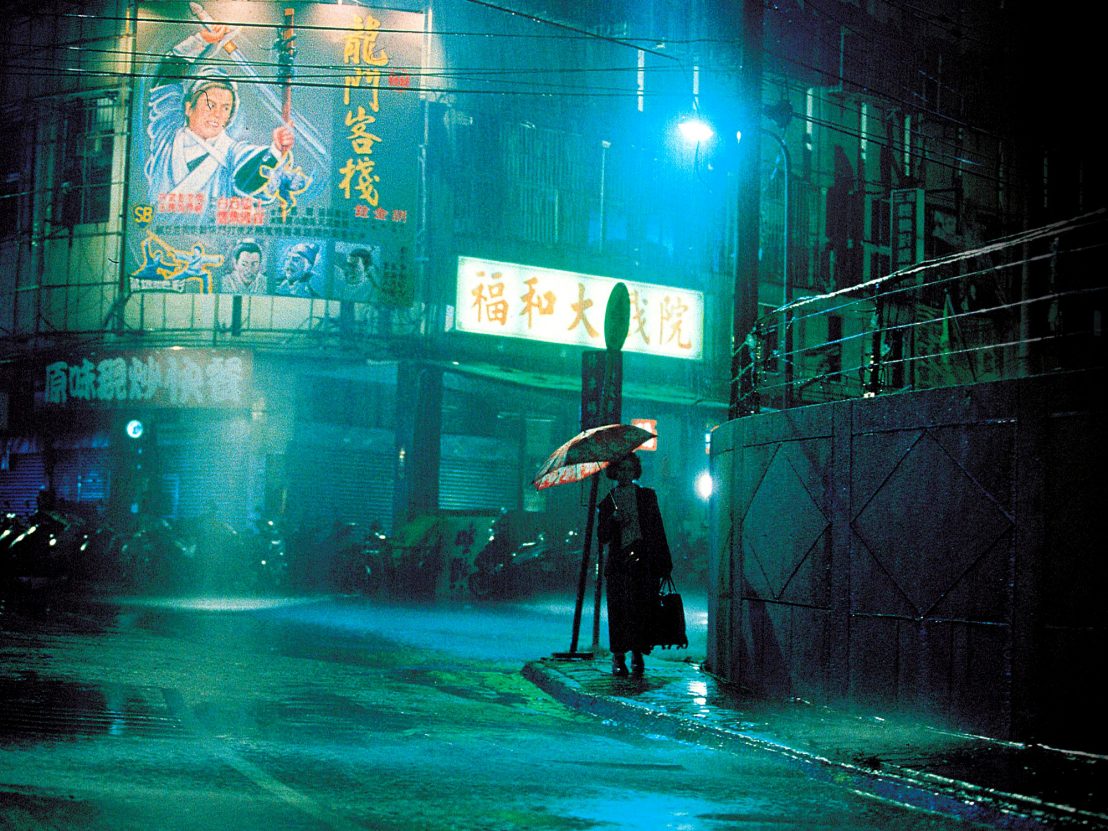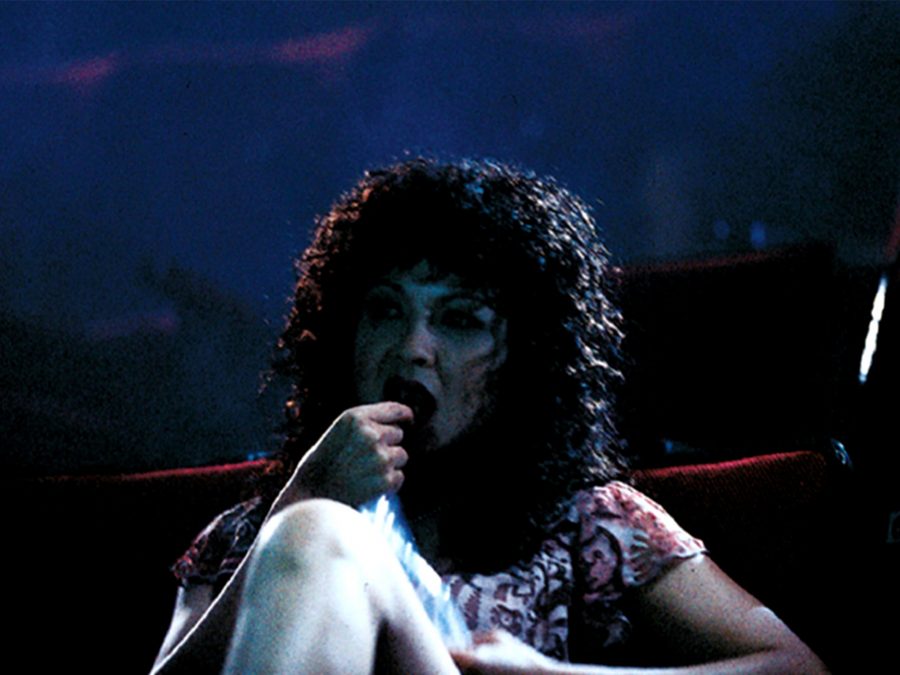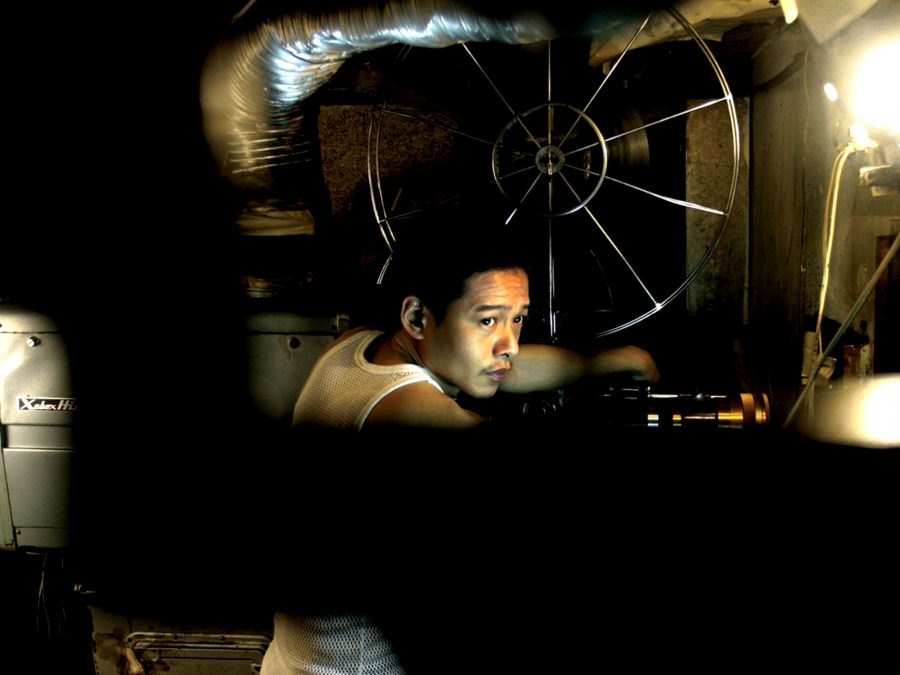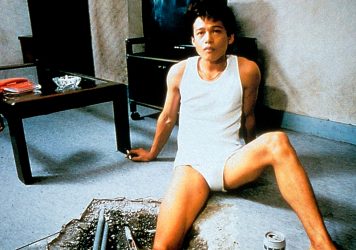
It’s not the first time that the mass extinction of the old-school picture house has been forecast. Yet in the wake of a second round of coronavirus lockdowns, forcing cinemas throughout the UK to temporarily shutter, with some major chains such as Cineworld and Odeon closing all of their venues indefinitely, the future looks undeniably bleak. All the while, detractors beg the question: who needs the multiplex when we’ve got Netflix at home?
Taiwanese auteur Tsai Ming-liang explored these same themes with potent effect back in 2003, after the owner of a theatre on the outskirts of Taipei advised him that the venue would soon be demolished due to lack of business. Feeling a sense of loss having being reminded of the long-lost theatres of his childhood, Tsai opted to rent out the venue to shoot a film. Today, with it having just received a long-overdue Blu-ray restoration, Goodbye, Dragon Inn feels more powerful than ever.
Opening with a dated orchestral motif that itself seems plucked from a time long since passed (imagine the 20th Century Fox fanfare played through a walkie-talkie), a sense of longing is immediately established as the film opens inside the cavernous Fu-Ho Grand Theatre. An impressive and vast auditorium in its heyday, it has long since begun to show its age. The walls are cracked, and crumbling; the toilet attendant has a heavy limp, and a black cat flees as water from a storm begins to flood the foyer.
Inside, meanwhile, the epic wuxia film Dragon Inn, by Chinese filmmaker King Hu, plays for the last time on the big screen. On its initial release in 1967, the film broke box-office records in multiple East Asian territories – but here it plays out in a near-empty room.
The few patrons present have little interest in the feature itself, and even less respect for the theatre. Two women loudly chew watermelon seeds in one of the back rows, while a wandering man makes homosexual advances in the corridors. One patron puts his dirty feet up on the seat in front of him; another spreads rumours that the building is haunted.
The musings of these nameless moviegoers form little in the way of a narrative, but through masterful cinematography, and an evident admiration for the theatre itself, Tsai manages to conjure genuine wonderment across his film’s lean 82-minute runtime.

Goodbye, Dragon Inn is a beautiful film. With scarce dialogue, few camera movements, and an average shot length of 55 seconds, it offers a deeply contemplative meditation on the forgotten magic of the cinema as an institution. Whether observing a stroll down the well-trodden corridors, a lone usher completing menial tasks, or simply the dark blanket of the auditorium itself, each shot is composed to encourage a full ingestion of the architecture and atmosphere of this ancient temple of exhibition.
The film has been dubiously lumped in as an example of “slow cinema”, but this is far too dull a descriptor to effectively communicate the power of Tsai’s engaging style. As this stunning restoration illustrates, a sense of energy is palpable in the striking colours that light up each shot, from the flickering yellow foyer lights to the pastel-blue bathroom tiles, bright red cinema seats and the green, paint-flecked concrete walls.
And while a rare moment of montage offers a sense of big-screen anticipation at the film’s opening (several shots of the cinema screen are edited together as Dragon Inn begins in the theatre), the film’s most powerful image has the opposite effect. In a climactic scene, the screening ends and the lights come up in the Fu-Ho Theatre, leaving a fixed camera to observe the empty seats for a full five minutes in a profound display of loss, even sadness.

A FIPRESCI Award-winner at the Venice Film Festival in 2003, Goodbye, Dragon Inn feels even more potent today than it did upon initial release. It’s a film that makes you yearn for those imperfect spaces that are feeling increasingly out of reach – not only the cinemas; but also the concert halls, the decaying Victorian pubs, the dive bars and even the greasy spoon cafes.
In a postmodern twist, this reissue of Goodbye, Dragon Inn brings new life to both a forgotten King Hu classic, and Tsai’s love letter to the Fu-Ho Theatre itself. It’s a statement on the cyclical and transformative nature of film – one that offers a hopeful sentiment when considering the future of cinemas in 2020 and beyond. For UK cinemagoers, a director’s statement from the film’s original press kit feels particularly prescient.
“Sometimes, I see [them] in my dreams,” Tsai says of the cinemas he would visit as a child in his hometown of Kuching. While they have long since disappeared, it was his warm memories of these places that inspired him to make something new. “One theatre,” he recalls, “was called the Odeon.”
Goodbye, Dragon Inn is now available on Blu-ray and DVD via Second Run.
Published 24 Nov 2020

The director’s slow cinema musical from 1998 sees a mysterious epidemic send Taipei into lockdown.

Part one of our bumper survey of the noughties, featuring Avatar, Borat! and Requiem for a Dream.

By Anton Bitel
An 8K presentation of the director’s VR project provides a uniquely immersive experience.